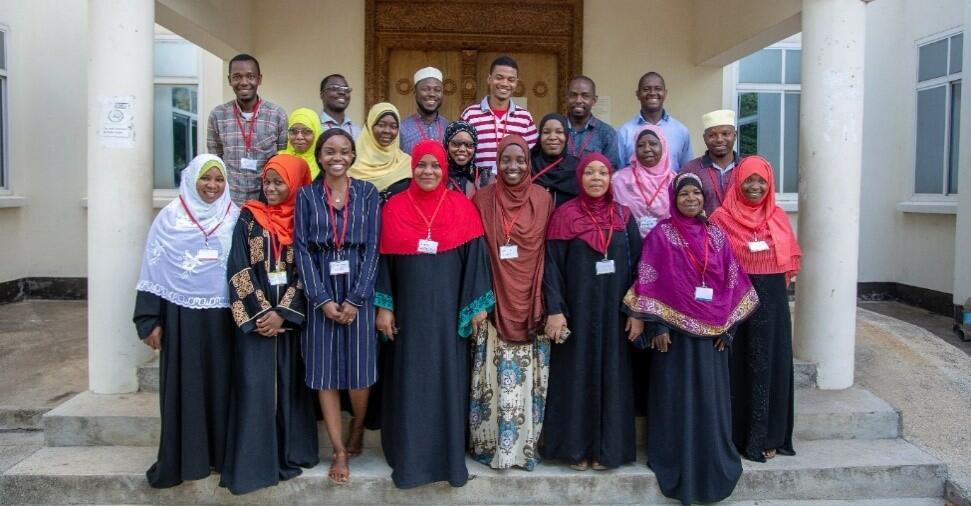
A team from the LSTM travelled to Zanzibar as part of a UNICEF-funded implementation research project to improve maternal and newborn health services.
Our team of experienced and dedicated facilitators delivered interactive, competency-based training workshops for 40 healthcare providers of varying cadres and levels of experience. The workshops focused on quality improvement in integrated malaria, HIV and TB services for antenatal, intrapartum and postnatal care facilities in Zanzibar. To date, over 250 healthcare providers (predominantly midwives) from Afghanistan, Chad, Ghana, Tanzania and Togo have participated in this training.
In addition to the existing ANC and PNC workshop, the LSTM team have also developed a new 1-day competency-based intrapartum care workshop. This was received with great enthusiasm by the participants. Through a variety of teaching methods, they worked together practising context-specific scenarios, considering women’s individual health needs and the importance of empowering women to have a positive birth experience.
Throughout the workshops, our partners from UNICEF, Dr Maha Damaj and Dr Maryam Hemed, provided vital context around maternal and newborn health, recognising the significant steps that have been made in Zanzibar in reducing maternal mortality. Preliminary data, however, indicates that the stillbirth rate is in fact rising. Our partners highlighted the pivotal role of antenatal and intrapartum care in the prevention of stillbirths in Zanzibar.
Feedback from participants following the training was very positive. They particularly valued having practical sessions focused on completing the partograph and were enthusiastic to practice the mechanism of birth during the course, enabling them to feel empowered to support women to move freely during births when they return to their facilities. The majority of participants also mentioned how useful they had found the training on psychosocial screening. One mentioned, “Now I know how to identify and detect domestic violence” and that “psychosocial care in pregnancy is a key intervention for preventing maternal morbidity.”
Participants found the practical skills acquired during the two days dedicated to postnatal care particularly useful. Participants mentioned “I learnt many things I did not know about, like insertion of IUCD, Kangaroo mother care and how to counsel a mother experiencing domestic violence,” also, “how to conduct and schedule postnatal visits and the importance of at least 4 contacts.”
The theme of respectful maternity care is interwoven throughout all the workshop content, supporting staff to recognise this intrinsic theme as a key indicator of quality of care, considering a rights-based approach in sexual and reproductive health. The participants felt empowered to influence and support more dignified, responsive and respectful maternity care, and a passionate colleague stated: “When I return to my facility I will share what I’ve learned by providing respectful maternity care to women and discussing the importance of it with my colleagues.”
Practical testing, OSCEs and multiple-choice questions were used to assess knowledge before and after the workshop. Preliminary data indicates that participants had a 41.6% increase in knowledge for managing complications and referring women to a higher-level facility. Preliminary data also indicates a 17.3% improvement in the knowledge of managing neonatal infection, which is a leading cause of neonatal mortality. These results highlight important steps towards improving the quality care women receive during pregnancy and childbirth.
A final thought from the passionate healthcare providers caring for mothers and babies in Zanzibar, “I will use the knowledge to teach other staff in my facility to achieve better outcomes for women and we will work as a team to improve the healthcare system.”
Supervision visits will now be conducted to assess the knowledge and skills of the healthcare providers post-training in their respective health facilities.